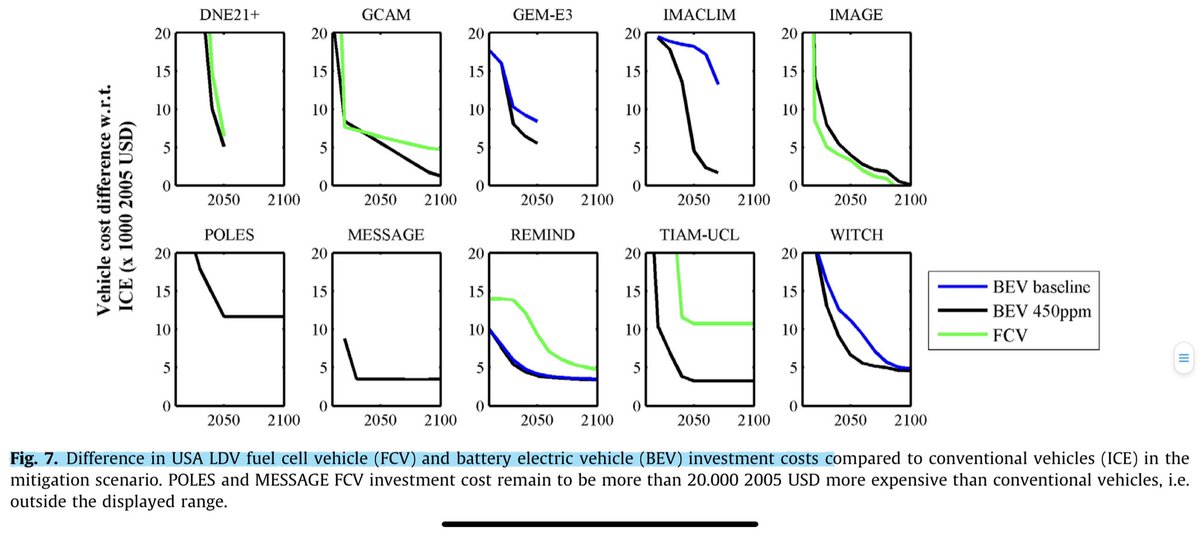
This figure illustrates a really key point about #ElectricVehicles - cost parity is not the end of the road. They are on track to be *cheaper* to buy than gasoline vehicles (not to mention cheaper to drive and maintain).
Source: @TheICCT theicct.org/publications/u….
Source: @TheICCT theicct.org/publications/u….

This is an example of how decarbonization is worth doing with or without climate change. We could be spending less on cars in a decarbonized future than if we don't decarbonize. More on that below.
https://twitter.com/EmilDimanchev/status/1315619195904720898?s=20
Not everyone may agree with ICCT's projections. I am not sure I fully agree either. But the general point remains: EVs vs gasoline vehicles is the story of a continuously improving technology vs. one that (while improving) is not poised to be much cheaper than it is now.
Not surprisingly, @ramez made this point back as long ago as 2016. Still, I see a ton of attention paid to the point of cost parity & a lot less on what happens after. But it's the latter that matters in the long term & for multi-decadal climate policy. rameznaam.com/2016/04/12/how…
• • •
Missing some Tweet in this thread? You can try to
force a refresh





